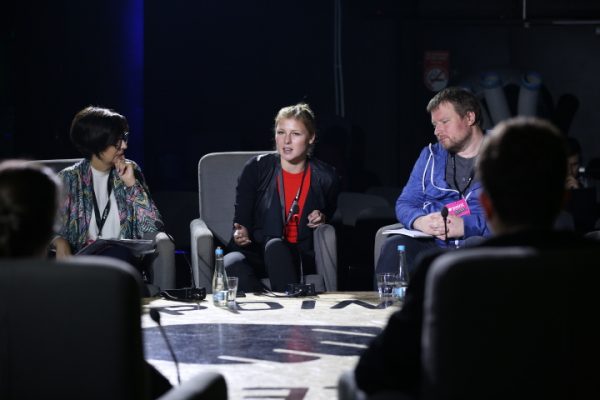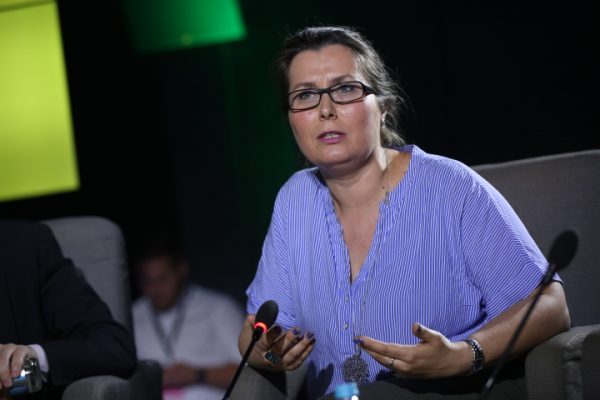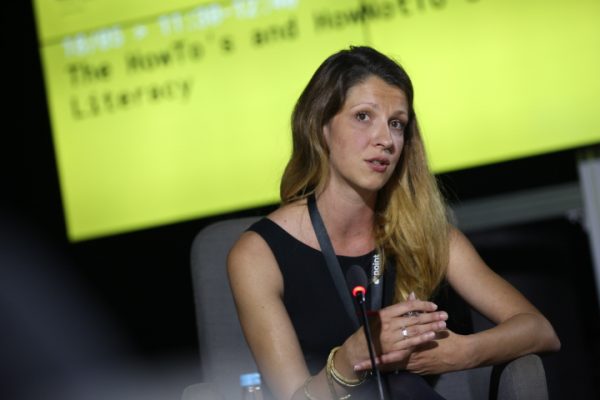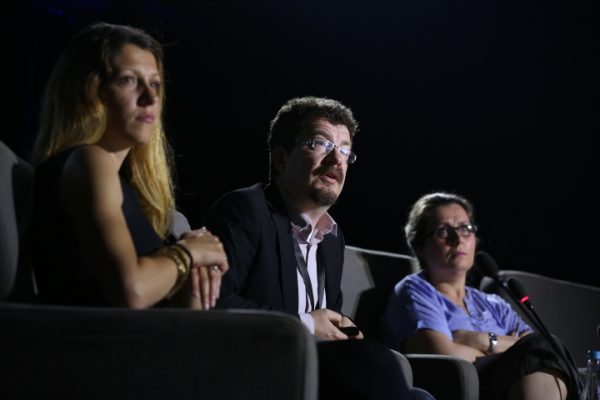The Howtos and HowNottos of Media Literacy
The main topic of today discussion is “How to teach citizens to communicate properly to media, and what the meaning of media literacy is”. Media literacy has become buzzword when it comes to countering fake news effectively. However, media literacy is not a key to everything as people appear to believe. It’s one of the benchmarks to measure media freedom.

Photos by: Vanja Čerimagić
Factcheckers.it started as idea to bring the tools into schools, but it was very hard to interact with schools and teachers without extra funding. When a paper was published by Ministry of Education in Italy. Media literacy was supposed to be a part of school curriculum. Fact checkers decided to take a different approach due to lack of funding and capacity. They decided for different approach – to create tools which will be used in schools by teachers and students.
These tools are created to make children school children enter the discussion in order to develop their critical thinking as well as understand what media literacy truly is.

The political climate is not the best for this. Despite that, we are trying to improve by communicating with different countries who are working on media literacy. The main idea is to approach this systematically. It is on CSOs to fill the spots left by government and also to make governments understand how this approach is important.
Journalist Tijana Bumbić believes that media literacy should be treated as a subject in schools, however it is still early for this. In the meantime, we are happy if we could implement it into school programs in any form. The idea is to create a great cooperation with teachers who are willing to understand how technology affects the children in this age, as well as to find the best approach to teach these children about media literacy, and how to differentiate between fake news and real news.

The most of the cooperation comes for projects for training teachers from elementary and secondary schools. Media literacy is not only for children, also for seniors where we have a program which was established in Czech Republic.
The media literacy has much wider scope than just a tool to fight against fake news and propaganda. The psychology plays a big part in the presenting media to different audience.
The same news with different music in background given to different social groups can trigger different response. Same as in Balkans, in Czech Republic they did not have the support from the government because media literacy is highly controversial topic, therefore government do not dares to involve themselves with it.
Media literacy is supposed to bring the critical thinking, and provide lifelong learning cycle for both younger and older generation. We can say it is easier to approach children since their mind is not fully developed in terms of their political orientation. However, when it comes to senior generation is a lot harder, due to fact that fact checking is long and sometimes tedious and you really cannot expect from older generation to do it for every news that comes their way. The idea is to bring back the trust between journalists and older generation, in order to improve the current situation.

One of the approach is to stay away from fake news and media literacy, but take tech approach, through different algorithms to develop the tools which can limit the amount of fake news that appear in social media. The future of technology is heavily interconnected with media literacy. Most media outlets are moving away from hard copy news into online form, and it is very important to apply the media literacy to the trustworthy media outlets.
The big issue with fake news is used by almost everyone using internet to make money. This can be easily seen from political operatives, entrepreneurs that use media manipulation for “click baits” and use social media networks for profit. Eurostat did a measurement of trust in media. It shows excellent graphs from country to country what the public opinion about news is and how much normal people trust the news. It is important to say that freedom of media is connected to media literacy, therefore the countries which have less media freedom also have lower levels of media literacy.
Presentations from this POINT 7.0 session are available HERE